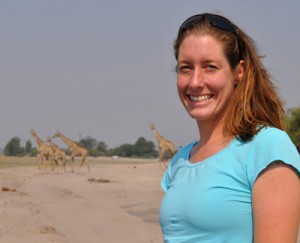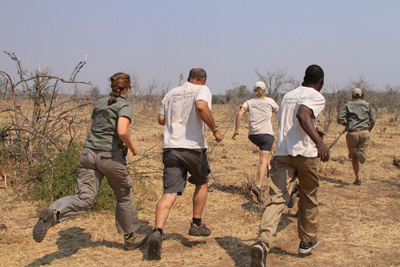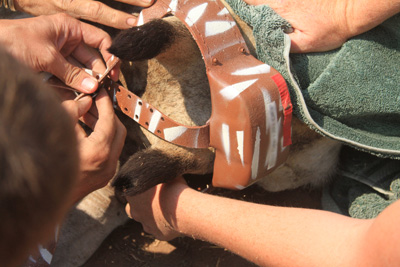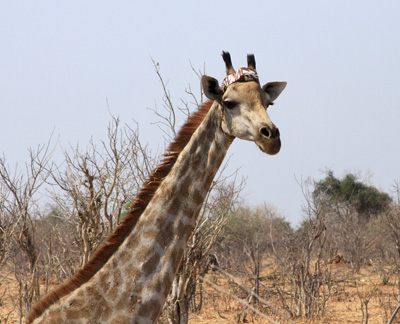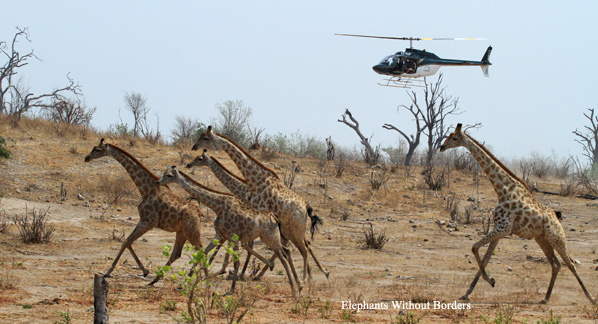Botswana Giraffe Research is well underway!
As part of EWB’s new large herbivore study, in addition to the “collaring” of a giraffe in the NG26 concession within the Okavango Delta, we have now deployed an additional three GPS satellite head harnesses to giraffe in Chobe National Park, enabling a comparison of giraffe movements between the two unique ecosystems. The whole exercise was exhilarating to say the least: flying through the air in an open-sided chopper to locate suitable giraffe, watching and waiting in eager anticipation while the animals are darted, fitting the head harnesses and the satisfaction of seeing these amazing creatures get up and gallop off. (read about EWB’s Large Herbivore research: https://elephantswithoutborders.org/blog/?p=1258)
Programmed to record the giraffe’s locations every four hours, the GPS units will provide invaluable, long term information about the giraffe’s daily and seasonal movements, home range size, habitat preferences and landscape use – information which would otherwise be almost impossible to attain. Knowledge of the spatial ecology and use of landscape by giraffe is essential in understanding their biological and ecological requirements.
Already, their movements have been interesting, with the Chobe giraffe moving up to 25km from their initial collaring sites, a much further distance than has been recorded for their Delta counterpart. This is likely an indication of available resources, with the Chobe giraffe having to travel larger distances to find sufficient forage – a common phenomenon in desert and semi-desert dwelling species, particularly in dry seasons when food resources are limited and competition for these resources is high. We eagerly wait to see how their movements will change once the rains eventually arrive and the currently dry vegetation is transformed into a green, nutritious medley of fresh new growth.
With giraffe numbers in apparent decline in northern Botswana, particularly in the Okavango Delta region, baseline ecological information is required before appropriate conservation management strategies can be considered. Whilst ecological information is available for giraffe populations elsewhere in Africa, the giraffe of northern Botswana have, until now, been neglected as a focus of ecological studies. I have excitedly joined the EWB team in collaboration with the Giraffe Conservation Foundation and the University of New South Wales to undertake the first giraffe study in the region, giving insight into their ecological requirements and behaviour, and conservation status. Analysis of this data will form the basis of my PhD.
Having been in the country for three months already (time sure does fly when you’re having fun!), I still can’t believe how lucky I am to be here, studying giraffe in this amazing part of the world, working alongside highly motivated and dedicated people, and having incredible opportunities to partake in such activities as aerial wildlife surveys and wildlife collaring exercises.
To learn more, visit our website at http://www.elephantswithoutborders.org/
To Support this or other EWB projects: http://www.elephantswithoutborders.org/donate.php
Tags: Abu, africa, botswana, chobe, conservation, delta, giraffe, research, satellite collar, wildlife
